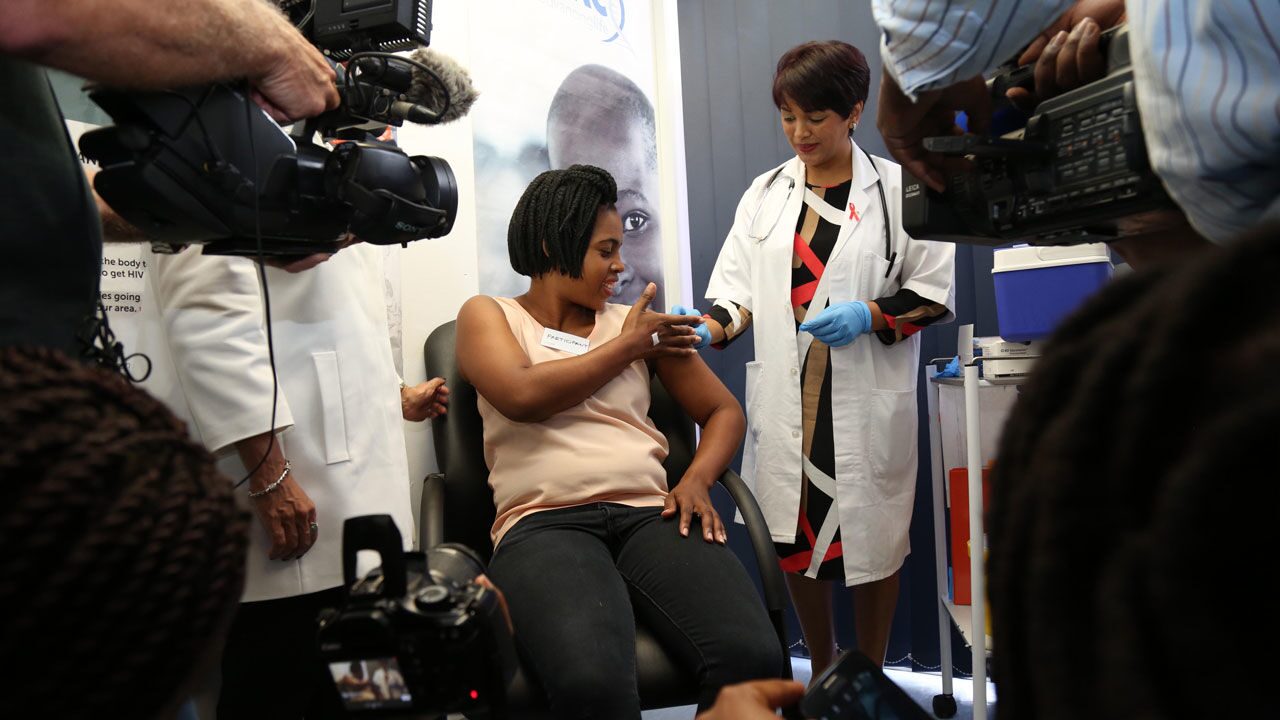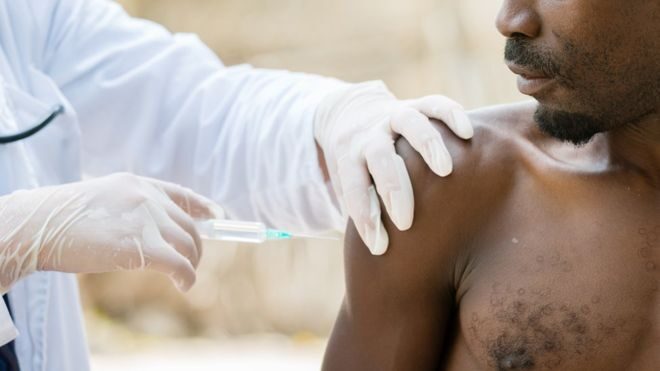HIV Vaccine Fails: The fight to prevent HIV hits roadblock
According to a BBC report came out on February 3/2020 The National Institutes of Health ceased its HVTN 702 trial. The HVTN 702 trial involved a vaccine developed by scientists to prevent HIV infection that was administered to over 5000 people in South Africa. Unfortunately, the trial was stopped early because it was concluded that the vaccine was not efficient in preventing HIV infection.

Woman in South Africa receives the experimental HIV vaccine in the HVTN 702 trial during its initial rollout in 2016. GALLO IMAGES/THE TIMES/JACKIE CLAUSEN/GETTY IMAGES
How the Study Was Carried Out
The vaccine was administered to approximately 5000 volunteers. According to Sciencemag.org, the volunteers consisted of HIV uninfected males and females who were between the ages of 18 and 35 who were sexually active across 14 different sites in South Africa. South Africa has one of the highest rates of HIV in the world.
The experiment required half of the participants to get the desired vaccine and the other half would get a placebo which means there is nothing in it. The vaccine that was being tested had the canarypox virus as well as genes for HIV’s surface protein and two of its other structural proteins. This combination is pretty harmless as the canarypox virus is one that is able to enter human cells but is unable to survive and multiply thus isn’t able to cause an infection. As you know, HIV exists in many strains and so this particular vaccine was adapted to the most common type in South Africa, according to the BBC.
The volunteers were tested and according to BBC, it was shown that there were 129 HIV infections among the persons who received the vaccines and 123 HIV infections among those that got the placebo. Due to these results, the study, which would have lasted up until July 2022, was halted because it was deemed ineffective.
The cost of the experiment ran up to $104 million dollars and this massive bill was footed by the funded by MRC, the U.S. National Institute of Allergy and Infectious Diseases (NIAID), and the Bill & Melinda Gates Foundation according to Sciencemag.org

Hopes have been dashed an experimental vaccine could protect people against HIV, the virus that causes Aids.
Past Trials and Vaccines
Scientists have been trying for years to stop this deadly virus in its tracks. The HVTN 702 trials came on the heel of a previous vaccine that was being used in Thailand in 2009. In Thailand’s trial which involved 16,000 people, the largest ever study, the vaccine was proven to prevent HIV infection by about 31%. It was agreed that the results weren’t large enough to carry the vaccine to the market. However, many scientists saw this as hope and so the HVTN 702 trials were actually said to be an improved version of that vaccine.
The director of the NIH, Anthony Fausi, gave some insight as to why the HVTN trial failed so miserably after the Thai trial of 2009 looked so promising. According to Fausi on Sciencemag.org, the Thai study involved people with relatively low risk of infection which was 0.3% per year. However, Sciencemag.com stated that “In the South Africa study, the rate of new infections per year was about 4% in women and 1% in men” Fauci believes that the failure could be a result of the protection provided being overwhelmed.
What is Available to Prevent Infection
Finding a preventative vaccine for HIV is important according to Fauci. Fauci said: “An HIV vaccine is essential to end the global pandemic and we hoped this vaccine candidate would work. Regrettably, it does not.”
Currently, there are other trials underway. Sciencemag.org highlighted the Mosaico trial which proved in earlier trails to create binding antibodies and other immune responses when injected. The results from this one will be available in 2021 as well as in 2023.
The best HIV prevention, besides condoms and abstinence, is a drug treatment known as pre-exposure prophylaxis (Prep). Unfortunately, it has to be taken regularly and so naturally, a working vaccine would be preferred.Contributed By Trevann Hamilton
